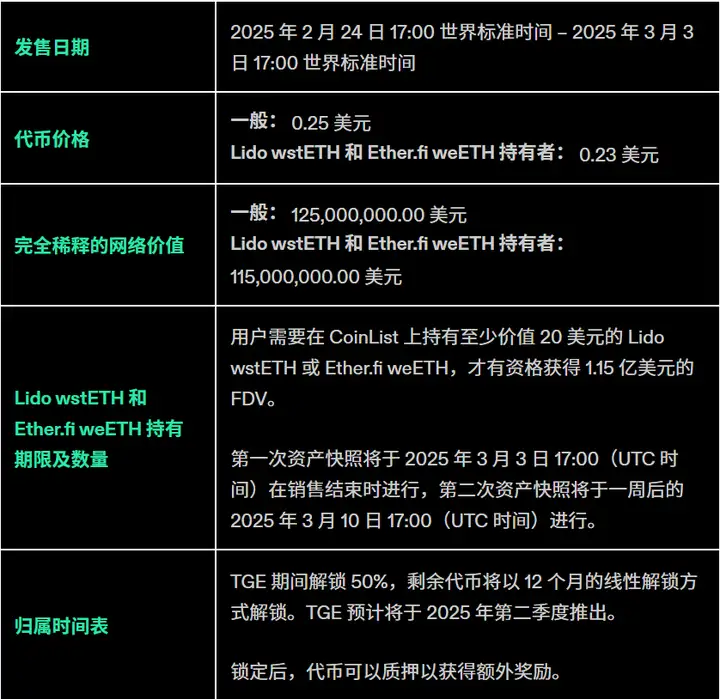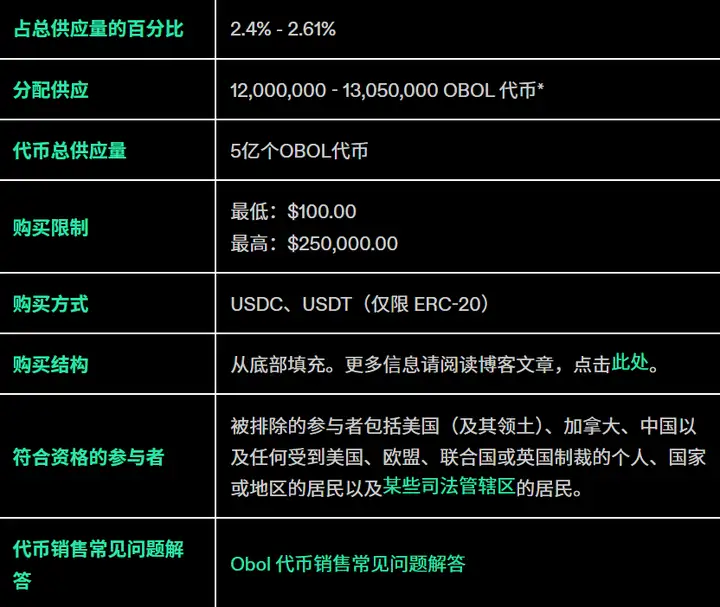Obol is an important project in the decentralized staking (DVT) track, receiving investments from top institutions like a16z and Coinbase Ventures.
With a clear technical positioning, it aims to solve the centralization problem in Ethereum staking, with a clear market demand.
VX: TZ7971
Market Sentiment
If the bull market continues during its launch, and the staking/reStaking track is in high demand, it may drive speculation.
If similar projects (such as SSV, Lido) perform strongly during the same period, it may create a sector effect.
Token Economics (TGE)
Circulation: If initial circulation is low (<20%), it may drive up prices due to scarcity; if a large amount is unlocked, it will face selling pressure.
Exchange Listing: If listed on major exchanges like Binance/OKX, liquidity premium will be significant.

Price Prediction (for reference only)
Optimistic Scenario (Bull Market + Low Circulation + Major Exchange Listing)
Short-term (within 1 month): 1.5-3 (5~12x)
Medium-term (3~6 months): If ecosystem development goes smoothly, may hit $5+ (20x)
Conservative Scenario (Market Downturn + High Circulation)
Listing Price: 0.5-1 (2~4x)

Subsequent Performance: Need to observe staking adoption rate and competitor performance
Early-stage projects have extreme volatility and may sharply drop due to market sentiment or token unlocking.
Need to closely follow mainnet progress, partners, staking scale, and other fundamentals.
Operational Suggestions
Pre-sale Participants: Consider partial profit-taking (e.g., 2~5x) after initial price surge, keeping a base position to observe.
Non-participants: Wait for price stabilization after listing or confirm ecosystem progress before entering.
OBOL's long-term value depends on its DVT technology adoption rate, with short-term prices driven by market sentiment. If the track explodes, the pre-sale price of $0.25 may become a low-entry point, but volatility risks should be noted. Recommended to continuously track Obol's official announcements and on-chain data (such as staking TVL, number of partner nodes).





